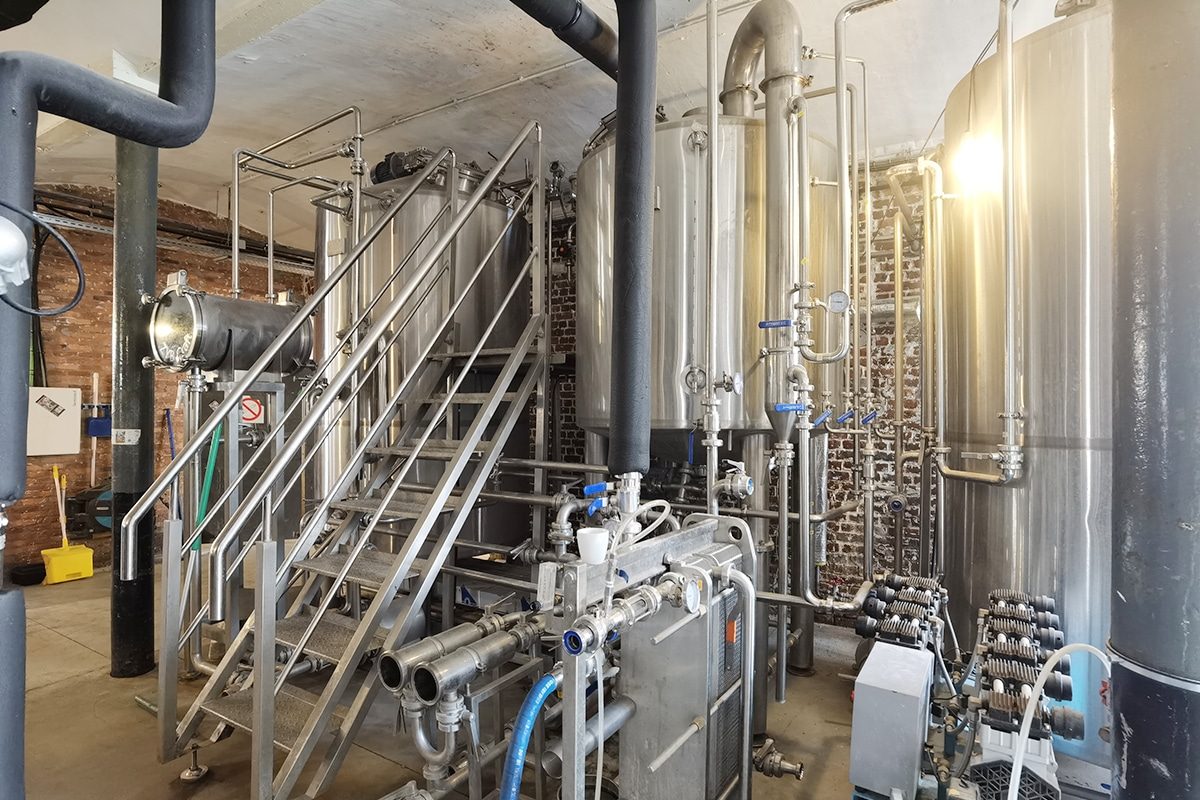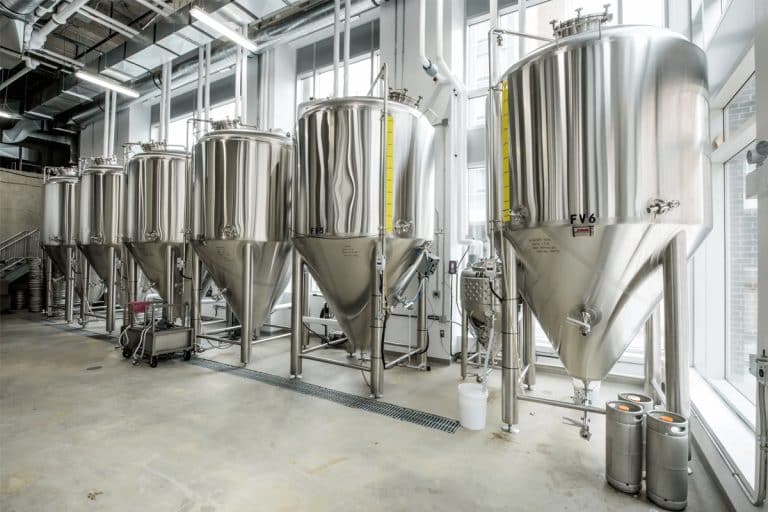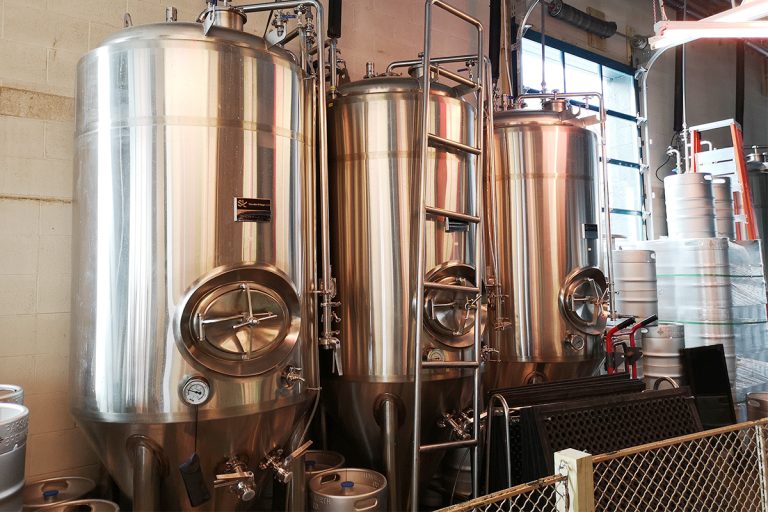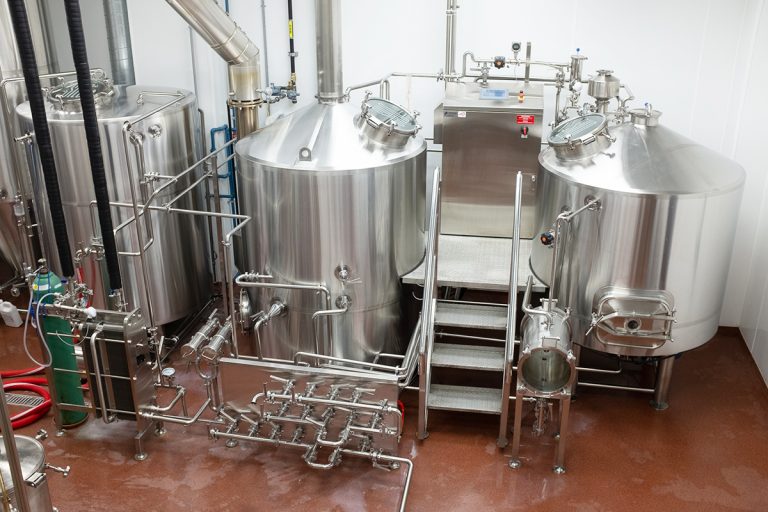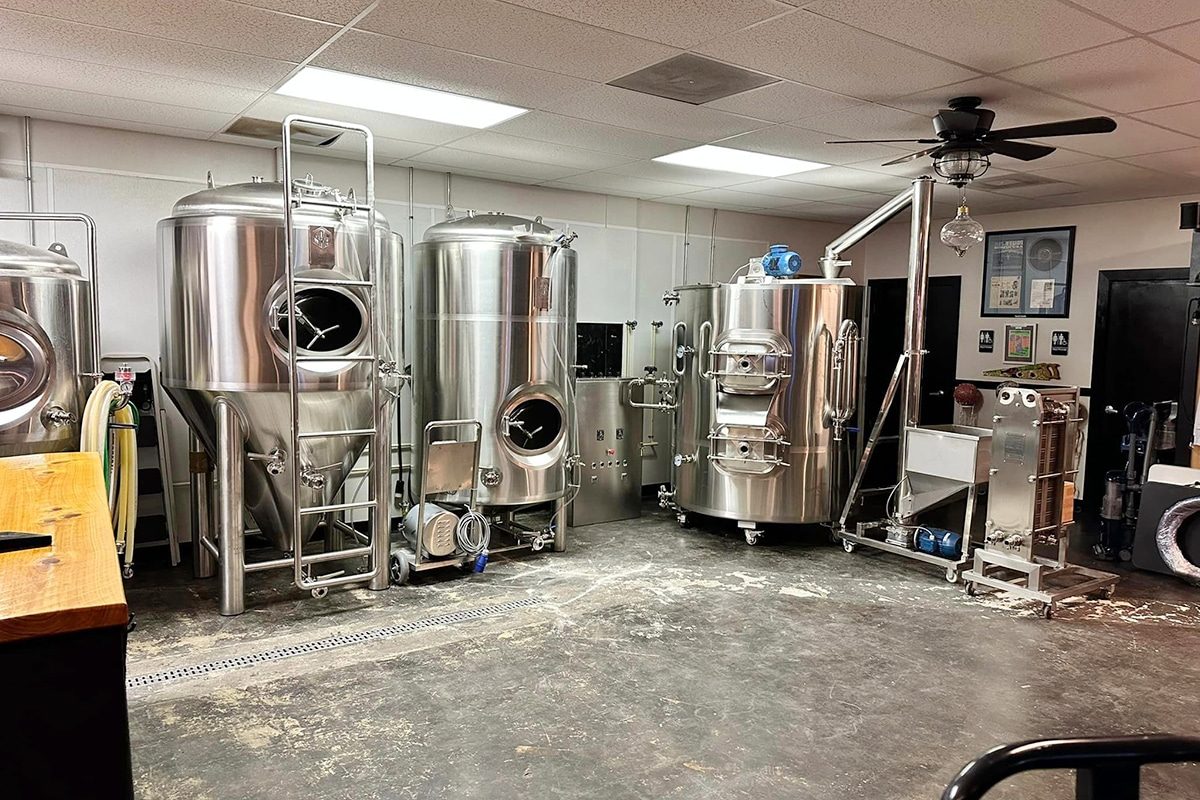
What Are The Potential Fire Hazards With Brewery Equipment?
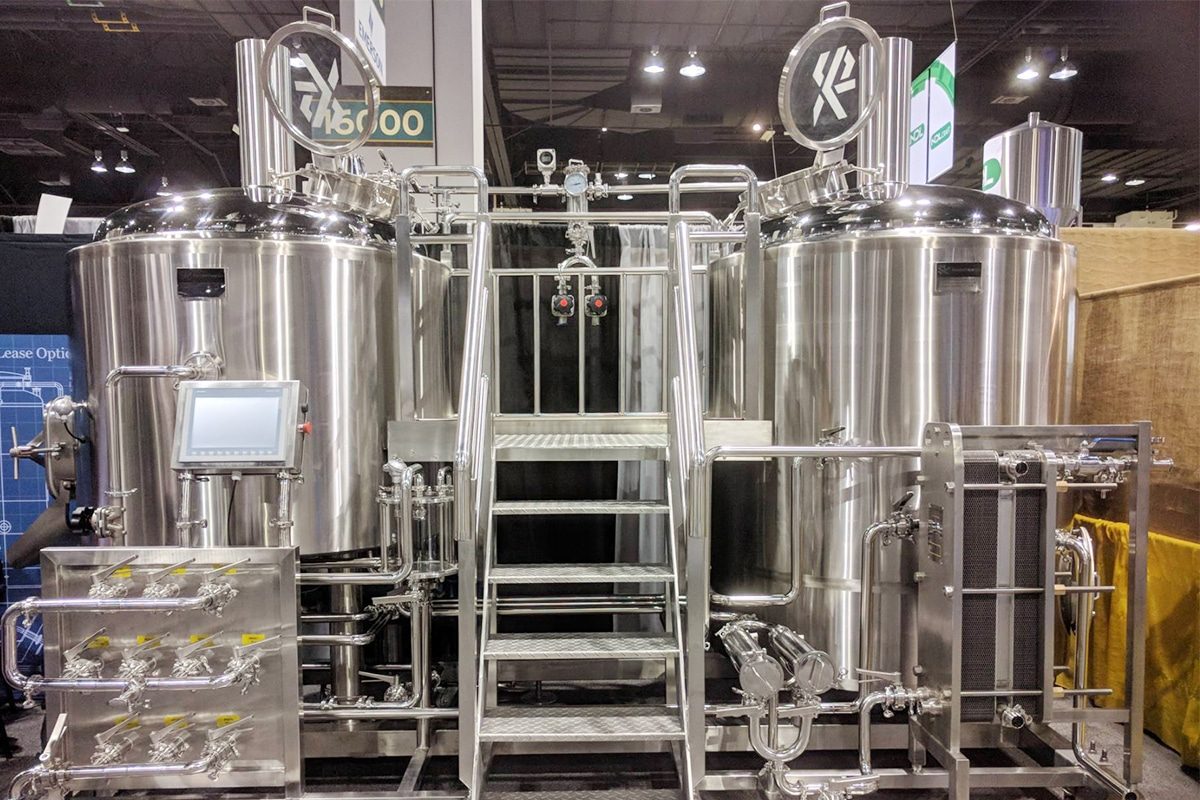
Heating Equipment and Hot Surfaces
Heating equipment and hot surfaces are integral components of the brewing process, presenting significant fire hazards if not properly managed. Breweries use various heating methods, including gas burners, electric heaters, and steam boilers, each with unique fire risks.
- Gas Burners: Gas burners are commonly used to heat large volumes of water and wort. These burners, connected to gas lines, can pose severe fire hazards if leaks occur. A gas leak can lead to gas accumulation in confined spaces, creating an explosive environment. Ignition of the accumulated gas can result in devastating fires or explosions. Regular inspection and maintenance of gas lines and connections can help detect and repair leaks, and proper ventilation can prevent gas buildup.
- Electric Heaters: Electric heaters are another prevalent heating method in breweries. They involve electrical components that, if faulty or improperly maintained, can overheat or produce sparks. Overheating can ignite nearby combustible materials, while sparks can cause fires, especially in dusty environments. Ensuring that electrical heaters are correctly wired, adequately grounded, and regularly inspected can mitigate these risks. It is also vital to keep the area around electric heaters clear of flammable materials.
- Steam Boilers: Steam boilers are used to generate the steam needed for various brewing processes. These boilers operate under high pressure and temperatures, making them potential fire hazards if not correctly maintained. Boiler malfunctions, such as pressure buildup or faulty safety valves, can lead to explosions. Regular maintenance, pressure checks, and safety valve inspections ensure safe boiler operation.
Electrical Equipment
Electrical equipment is pervasive in modern breweries, powering everything from pumps and refrigeration units to automated control systems. However, electrical systems can be a source of fire hazards due to several factors:
- Short Circuits: Short circuits occur when electrical currents take unintended paths, often due to damaged or exposed wiring. These can produce sparks, leading to fires, especially if they occur near flammable materials.
- Overloaded Circuits: Breweries require significant electrical power to operate various equipment. Overloading circuits by running too many high-power devices on a single circuit can cause overheating, leading to electrical fires.
- Outdated Electrical Systems: Older breweries may have outdated electrical infrastructure not designed to handle modern equipment’s power demands. Worn-out wiring and insufficient grounding can increase fire risks.
Flammable Materials
Breweries utilize and store various flammable materials that can become significant fire hazards if not managed correctly. These materials include:
- Grains and Hops: Dust from grains and hops can be highly combustible when suspended in the air. Milling and handling these materials can create dust clouds that, if ignited, can lead to explosions and fires.
- Cleaning Chemicals: Many cleaning agents and sanitizers used in breweries are flammable. Improper storage or handling of these chemicals can result in fires.
- Packaging Materials: Breweries often use large quantities of cardboard, paper, and other packaging materials that can easily catch fire.
Combustible Dust
Human Error
Human error is a prevalent factor in many fire incidents within breweries. Mistakes made by staff can lead to equipment malfunctions, improper storage of flammable materials, and failure to follow safety protocols.
- Unattended Heating Equipment: Leaving heating equipment unattended can result in overheating or spills, leading to fires.
- Improper Storage: Storing flammable materials near heat sources or in unventilated areas can increase fire risks.
- Lack of Training: Inadequate training can lead to improper use of equipment, failure to recognize hazards, and inappropriate responses to emergencies.
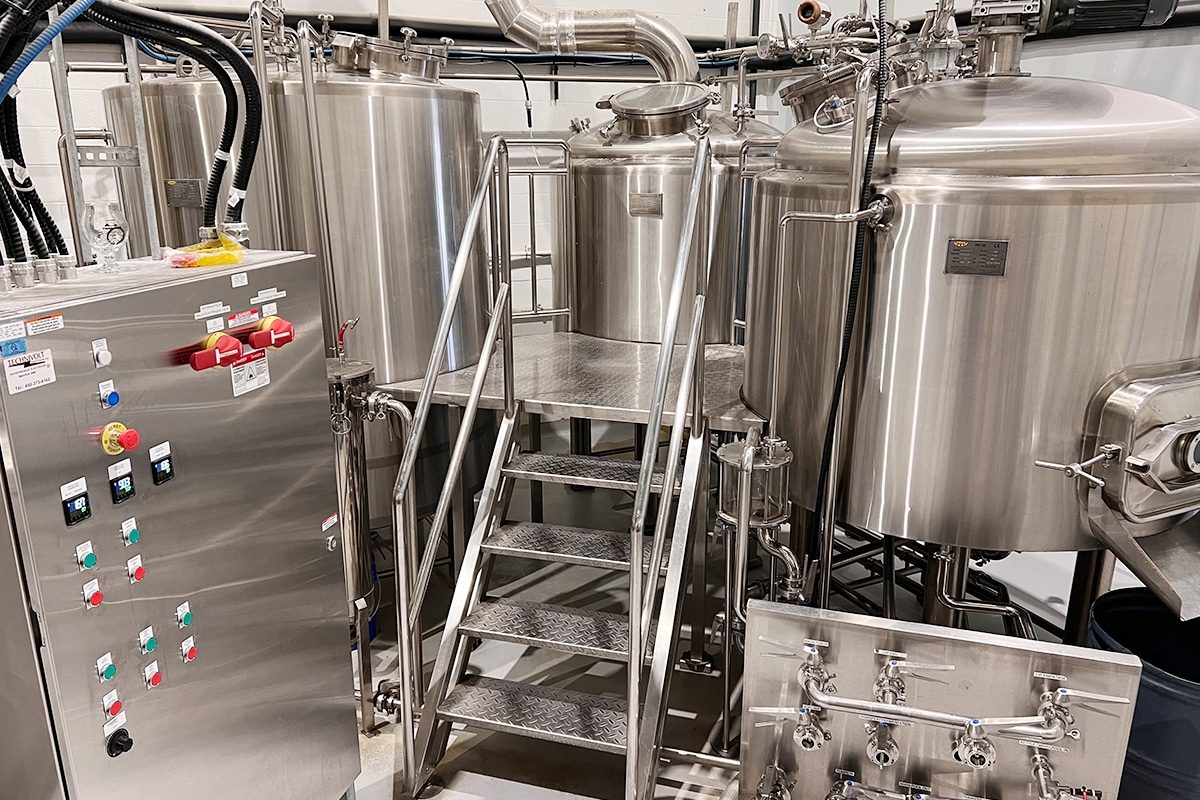
Causes of Fire Hazards in Breweries
Lack of Maintenance
Regular maintenance is essential for keeping brewery equipment in safe working condition. Neglecting maintenance can lead to a range of issues that increase fire risks:
- Gas Leaks: Poorly maintained gas burners and lines can develop leaks over time. These leaks can allow gas to accumulate, creating an explosive environment that can easily ignite with a spark or flame.
- Electrical Failures: Worn-out wiring, loose connections, and outdated electrical components can cause short circuits and overheating, leading to electrical fires.
- Boiler Malfunctions: Steam boilers require regular inspections and servicing to ensure they operate safely. Neglecting boiler maintenance can result in pressure buildup or faulty safety valves, increasing the risk of explosions and fires.
Inadequate Training
Proper training helps ensure that brewery employees can safely operate equipment and effectively respond to potential fire hazards. Inadequate training can lead to:
- Improper Use of Equipment: Without proper training, staff may misuse heating equipment, electrical systems, or other machinery, leading to overheating, spills, or leaks that can cause fires.
- Failure to Recognize Hazards: Staff who are not trained to identify potential fire hazards, such as gas leaks or faulty wiring, may overlook warning signs that could prevent a fire.
- Inappropriate Response to Emergencies: Inadequately trained staff may not know how to respond to a fire or other emergency, potentially exacerbating the situation and increasing the risk of injury or damage.
Poor Housekeeping
Maintaining a clean and tidy brewery environment can minimize the risk of fire. Poor housekeeping practices can contribute to fire hazards in several ways:
- Accumulation of Dust: Dust from grains and other materials can become highly combustible when suspended in the air. Accumulated dust in milling and storage areas can create an explosive environment if ignited.
- Cluttered Workspaces: Clutter can obstruct access to emergency exits and fire suppression equipment, hindering evacuation and firefighting efforts during an emergency.
- Improper Storage: Storing flammable materials near heat sources or in unventilated areas can increase the risk of fire.
Faulty Installation
Proper installation of brewery equipment is essential for ensuring safe operation. Faulty installation can lead to several fire hazards:
- Gas Leaks: Incorrectly fitted gas lines and burners can develop leaks, increasing the risk of gas accumulation and subsequent fires or explosions.
- Electrical Issues: Improper wiring, insufficient grounding, and incorrect installation of electrical components can cause short circuits, overheating, and sparks that can ignite fires.
- Structural Weaknesses: Inadequate support or improper installation of heavy or high-pressure equipment can lead to mechanical failures that increase fire risks.
Inadequate Fire Suppression Systems
An effective fire suppression system can help control and extinguish fires, thus preventing them from causing significant damage. Inadequate or poorly maintained fire suppression systems can exacerbate fire hazards in breweries:
- Delayed Response: Fire suppression systems that are not properly maintained may fail to activate promptly, allowing fires to spread more quickly.
- Insufficient Coverage: Inadequate placement or insufficient number of sprinklers, fire extinguishers, and alarms can leave certain areas of the brewery unprotected.
- Malfunctioning Equipment: Fire suppression equipment that is not regularly tested and maintained may fail during an emergency, rendering it ineffective.
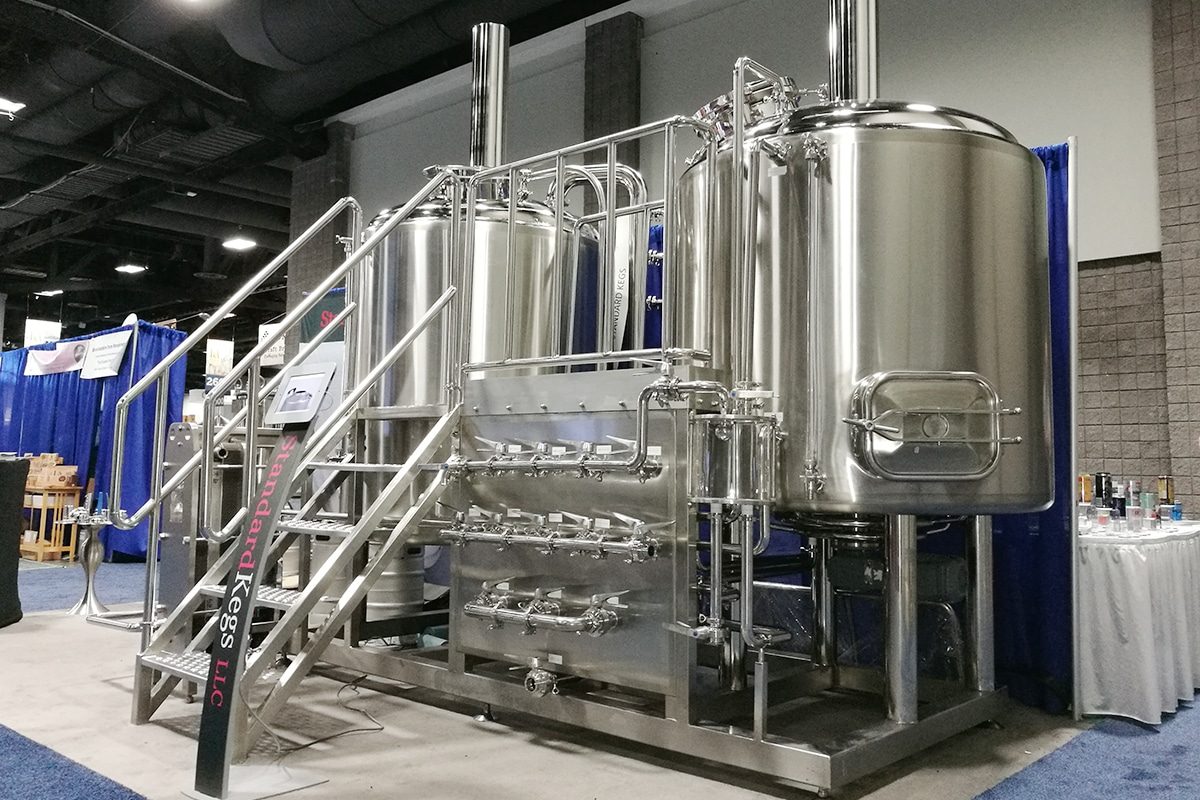
Prevention Strategies
Regular Maintenance and Inspection
Regular maintenance and inspection of brewery equipment can prevent breakdowns and reduce the risk of fire. Key steps include:
- Gas Burners and Lines: Schedule regular inspections to detect and repair leaks, ensuring that gas lines and burners are properly maintained. Use leak detection equipment to identify potential issues early.
- Electrical Systems: Conduct routine checks on wiring, circuits, and electrical components to prevent short circuits and overheating. Replace worn-out or damaged wiring and ensure that electrical panels are free of dust and debris.
- Boilers and Pressure Vessels: Perform regular maintenance and pressure checks on steam boilers and other pressure vessels. Ensure safety valves are functioning correctly and that pressure levels remain within safe limits.
- Documentation: Maintain detailed records of all maintenance activities, inspections, and repairs. This documentation helps track the condition of equipment and ensures that maintenance schedules are followed.
Staff Training and Education
Well-trained staff are essential for maintaining a safe brewery environment. Comprehensive training programs should include:
- Operating Equipment: Ensure that all employees understand the proper use of brewing equipment, including heating elements, electrical systems, and pressure vessels. Provide hands-on training and practical demonstrations.
- Recognizing Hazards: Educate staff on identifying potential fire hazards, such as gas leaks, electrical faults, and improperly stored flammable materials. Encourage proactive reporting of any hazards.
- Emergency Procedures: Train employees on emergency response protocols, including the use of fire extinguishers, evacuation routes, and first aid procedures. Conduct regular fire drills to reinforce training and ensure preparedness.
- Continual Learning: Offer ongoing training sessions and refresher courses to keep staff updated on safety practices and new equipment. Encourage a culture of continuous improvement and safety awareness.
Housekeeping and Organization
Keeping your brewery clean and organized can minimize the risk of fire.. Effective housekeeping and organization strategies include:
- Dust Control: Implement dust collection systems to capture dust at its source, particularly in milling and storage areas. Regularly clean surfaces to prevent dust accumulation and reduce the risk of dust explosions.
- Clutter Management: Keep workspaces tidy and free of obstructions. Ensure that emergency exits and access to fire suppression equipment are always clear and easily accessible.
- Proper Storage: Store flammable materials, such as cleaning chemicals and packaging supplies, in designated areas away from heat sources. Use appropriate containers and ensure that storage areas are well-ventilated.
- Regular Inspections: Conduct frequent inspections of the brewery to identify and address any housekeeping issues. Encourage staff to take responsibility for maintaining a clean and safe environment.
Proper Installation
Proper installation of equipment ensures safe operation and reduces the risk of fire. Key considerations for proper installation include:
- Qualified Professionals: Ensure that all equipment is installed by qualified professionals who follow manufacturer guidelines and safety standards. This includes gas lines, electrical systems, and structural supports.
- Compliance with Codes: Adhere to local building codes and safety regulations during installation. Obtain necessary permits and inspections to verify compliance.
- Secure Connections: Verify that all connections, such as gas lines and electrical wiring, are secure and free from leaks or faults. Use appropriate fittings and connectors to ensure stability.
- Periodic Reviews: Conduct periodic reviews of installations to ensure they remain compliant with safety standards and have not deteriorated over time.
Effective Fire Suppression Systems
Fire suppression systems are critical for controlling and extinguishing fires before they can cause significant damage. Implementing effective fire suppression systems involves:
- Sprinkler Systems: Install sprinkler systems throughout the brewery, ensuring that all areas are covered. Connect sprinklers to a reliable water supply and conduct regular testing to ensure functionality.
- Fire Extinguishers: Place fire extinguishers in strategic locations, such as near heating equipment, electrical panels, and storage areas. Ensure that extinguishers are easily accessible, clearly marked, and regularly inspected.
- Alarm Systems: Install fire alarm systems to provide early detection and prompt alerting of staff. Regularly test alarms to ensure they function correctly and that all staff are familiar with their operation.
- Maintenance and Testing: Conduct regular maintenance and testing of all fire suppression equipment, including sprinklers, fire extinguishers, and alarm systems. Replace or repair any faulty components promptly.
- Training on Use: Train staff on the proper use of fire suppression equipment, including how to operate fire extinguishers and activate alarm systems. Conduct practical training sessions to ensure confidence and competence.
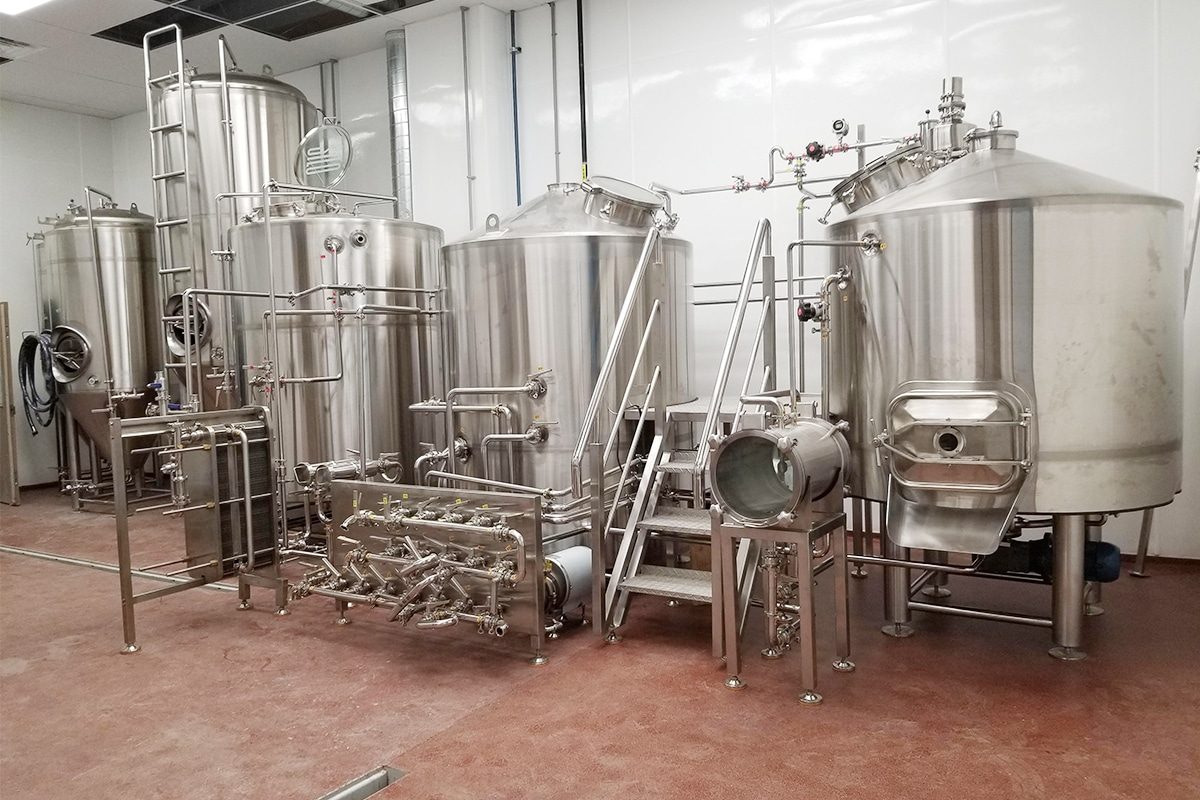
Safety Measures and Best Practices
Developing a Fire Safety Plan
A comprehensive fire safety program helps keep your brewery operational and your employees and customers safe. Key components of a fire safety plan include:
- Risk Assessment: Conduct a thorough assessment of potential fire hazards within the brewery, identifying high-risk areas and equipment.
- Evacuation Routes: Designate and mark evacuation routes throughout the facility. Ensure that these routes are easily accessible and free from obstructions.
- Emergency Contacts: Maintain an up-to-date list of emergency contacts, including local fire departments, emergency medical services, and key personnel within the brewery.
- Fire Drills: Conduct regular fire drills to familiarize staff with evacuation routes and emergency procedures. Evaluate and improve the effectiveness of these drills based on feedback and observations.
- Fire Suppression Equipment Locations: Mark and map out the locations of fire suppression equipment, such as fire extinguishers and sprinklers, ensuring that staff know where to find and how to use them.
Use of Proper Personal Protective Equipment (PPE)
Proper personal protective equipment (PPE) can protect winery workers from fire hazards and other workplace injuries. Key aspects of PPE use include:
- Heat-Resistant Gloves: Provide heat-resistant gloves for handling hot equipment, such as kettles and boilers, to prevent burns and injuries.
- Safety Glasses: Ensure that all staff wear safety glasses to protect against splashes, debris, and potential sparks from electrical equipment.
- Protective Clothing: Equip staff with flame-resistant clothing to reduce the risk of burns in the event of a fire. This includes aprons, long-sleeve shirts, and pants made from flame-retardant materials.
- Respiratory Protection: Provide appropriate respiratory protection, such as masks or respirators, when working in areas with high levels of dust or chemical fumes.
Implementing Safe Operating Procedures
Establishing and enforcing safe operating procedures can minimize the risk of fire during winery operations. Key elements of safe operating procedures include:
- Controlled Heating: Monitor and regulate temperatures and pressures when using heating equipment to prevent overheating and potential fires. Implement automatic shutoff systems where possible.
- Safe Handling of Chemicals: Ensure that all staff are trained in the safe handling and storage of cleaning agents and other chemicals. Use appropriate containers and keep chemicals away from heat sources.
- Equipment Checks: Perform routine checks of all brewing equipment to ensure that it is functioning correctly and safely. Address any issues or malfunctions promptly to prevent accidents.
- Standard Operating Procedures (SOPs): Develop and document SOPs for all brewing processes, detailing the correct and safe methods for operating equipment and handling materials.
Emergency Response Training
Effective emergency response training allows employees to handle fire incidents quickly and safely. Key components of emergency response training include:
- Fire Extinguisher Use: Train staff on the different types of fire extinguishers and their appropriate use. Conduct hands-on training sessions to ensure that staff are confident in operating extinguishers.
- First Aid Training: Provide basic first aid training to staff, including how to treat burns, smoke inhalation, and other fire-related injuries. Ensure that first aid kits are readily accessible and well-stocked.
- Incident Reporting: Encourage prompt reporting and documentation of any fire incidents or near-misses. Use this information to identify areas for improvement and to refine safety procedures.
- Role-Specific Training: Tailor emergency response training to the specific roles and responsibilities of different staff members, ensuring that everyone knows their duties during an emergency.
Collaboration with Fire Authorities
Working closely with local fire departments helps ensure breweries comply with fire safety regulations and are prepared for emergencies. Key aspects of collaboration with fire authorities include:
- Regular Inspections: Schedule regular fire safety inspections with local fire departments to ensure compliance with safety regulations and identify potential hazards.
- Guidance and Support: Seek guidance from fire authorities on best practices for fire prevention and emergency response. Stay updated on any changes to fire safety codes and standards.
- Joint Training Exercises: Participate in joint training exercises with local fire departments to simulate fire scenarios and practice coordinated responses. These exercises can help identify gaps in emergency plans and improve overall preparedness.
- Community Engagement: Engage with the local community and fire authorities to raise awareness about fire safety in breweries. Participate in community safety programs and share best practices with other local businesses.
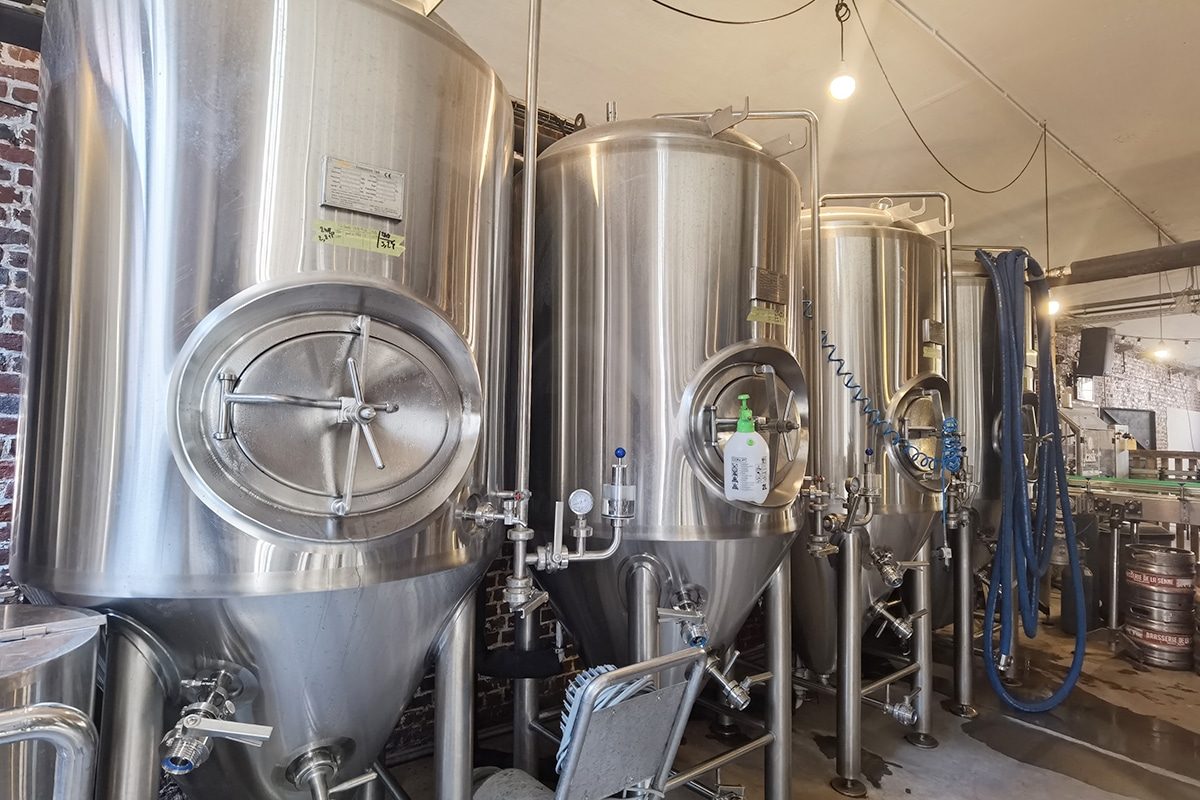
Summarize
